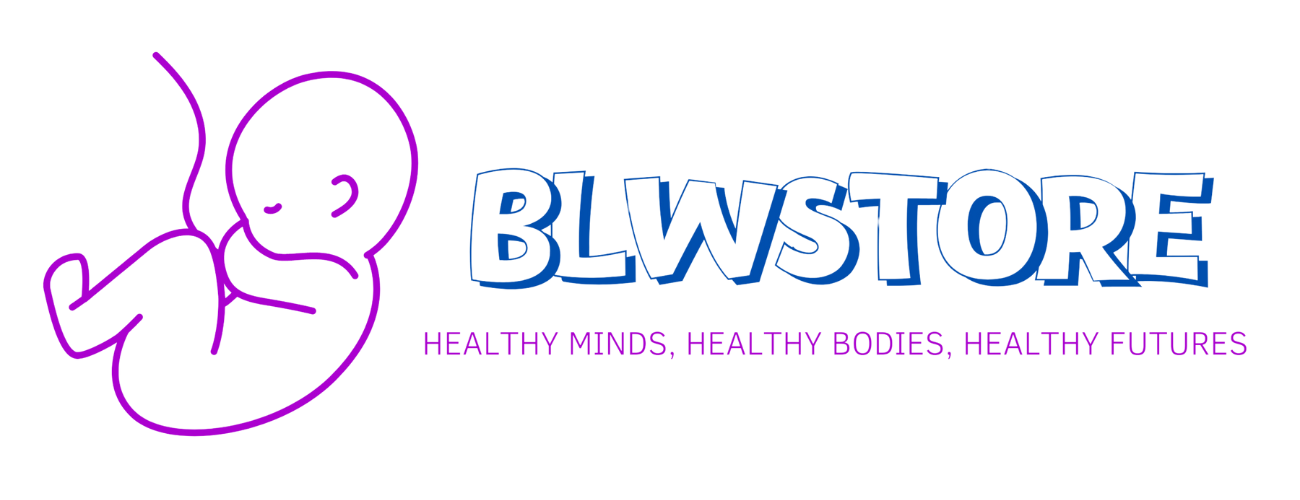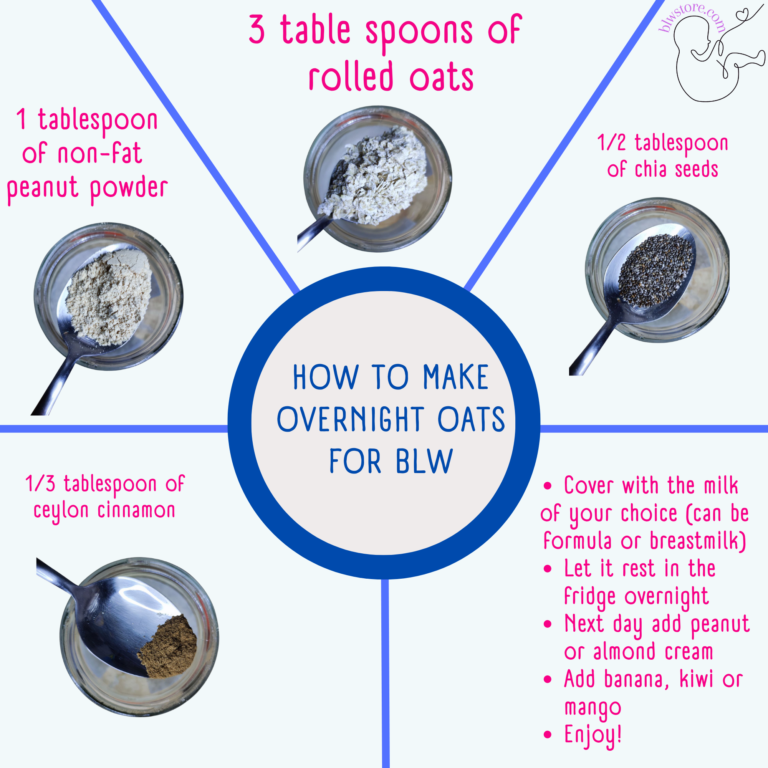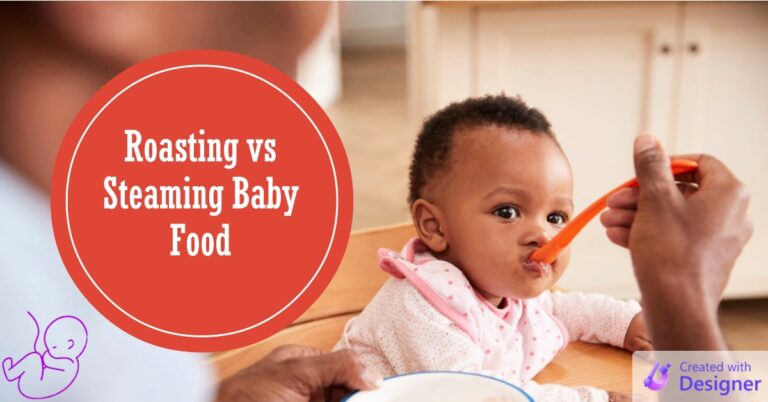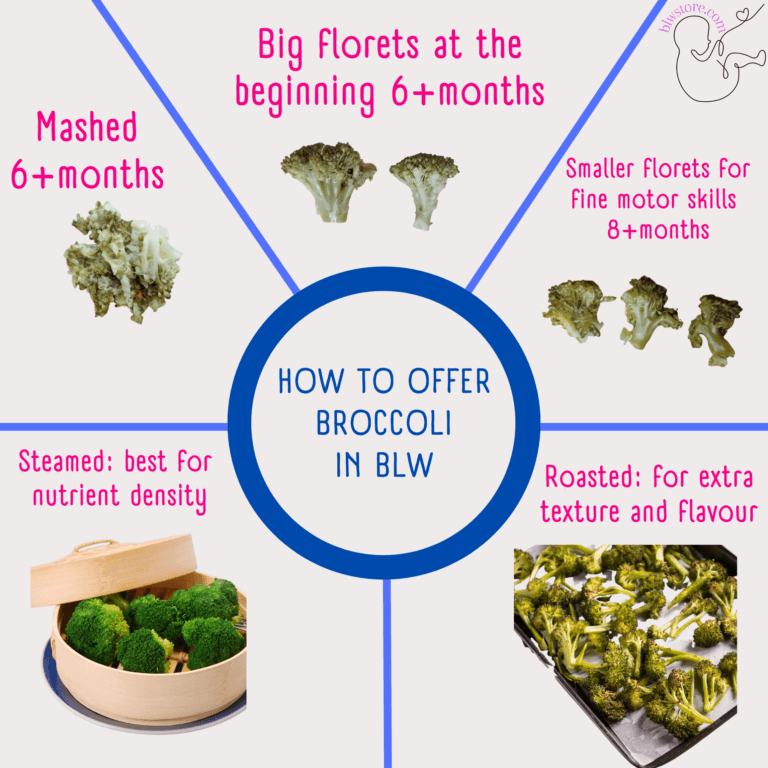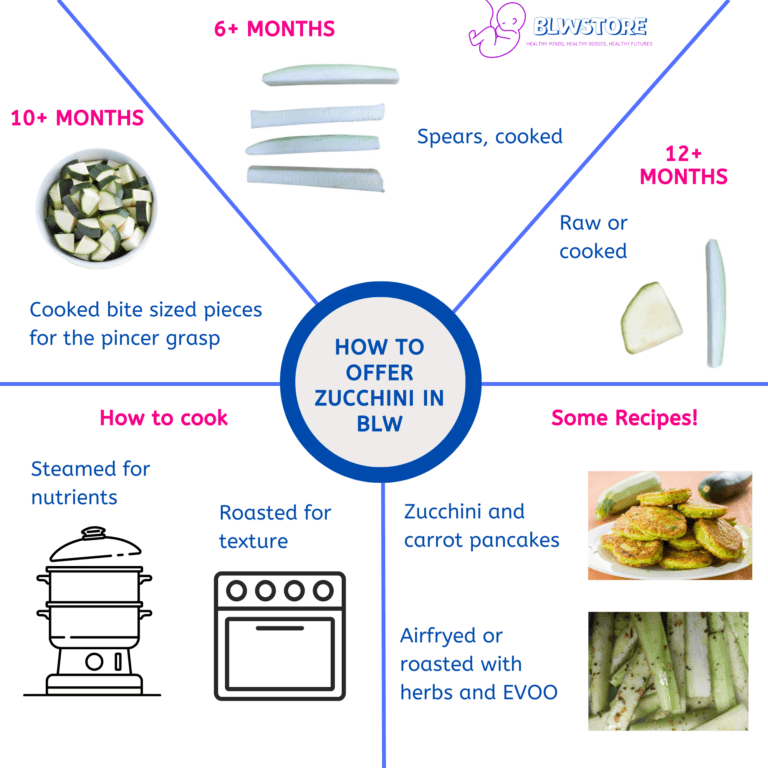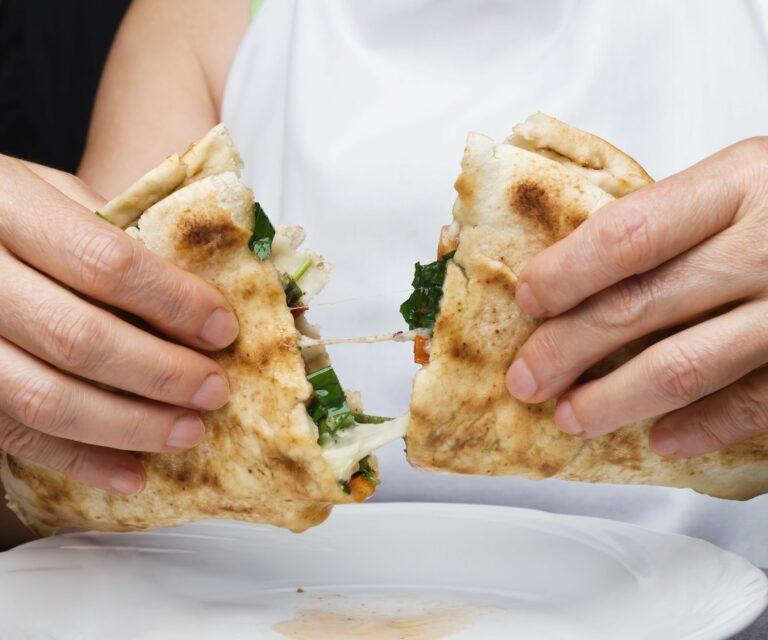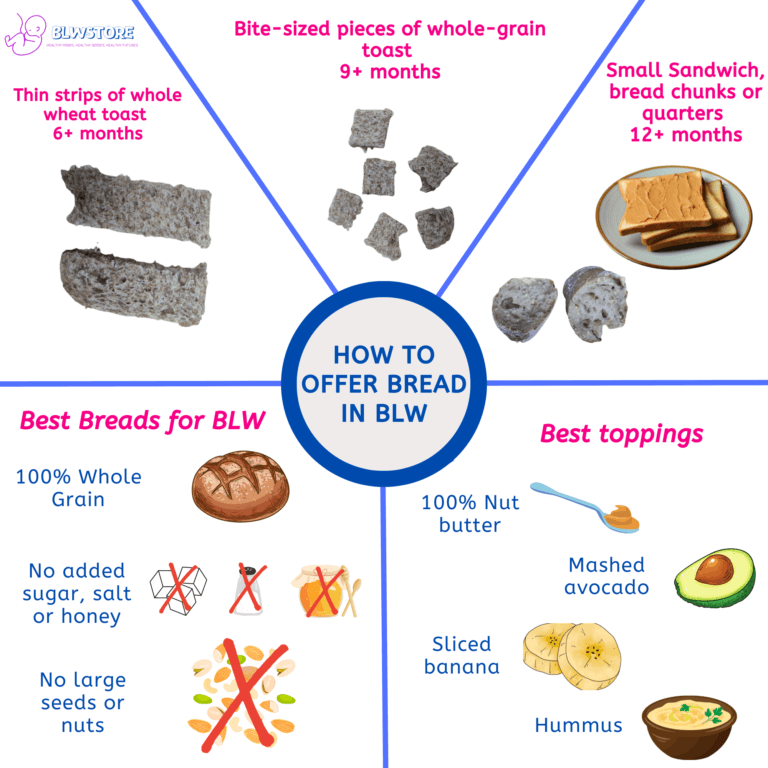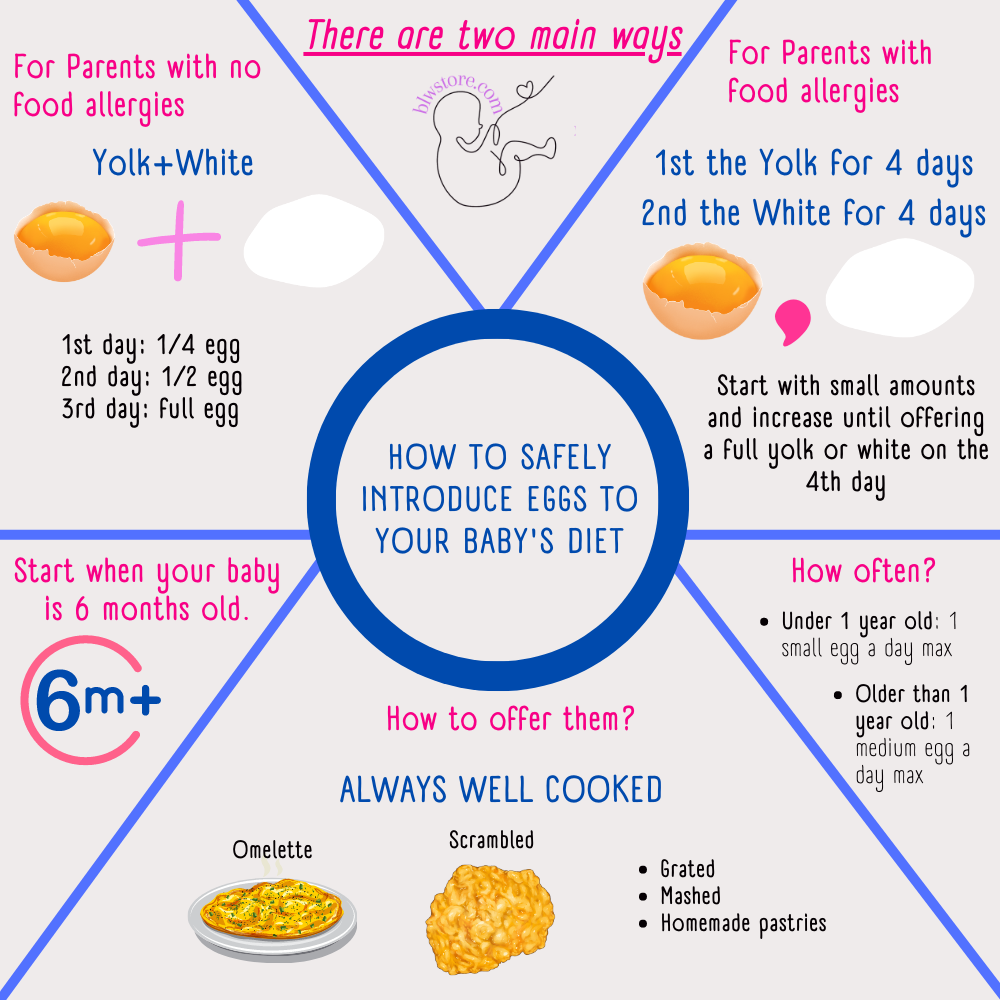
Eggs are a very complete food from a nutritional point of view. It is a food rich in:
- Fats “of the good kind” (healthy). Limiting its consumption by cholesterol is a myth, since many studies have shown its benefits at the cardiovascular level.
- Minerals: iron (non-heme), zinc, phosphorus, selenium, magnesium, calcium…
- Proteins of high biological value.
- B group and liposoluble vitamins (A, D, E, K).
Key takeaways
- Eggs can be safely introduced to a baby’s diet as early as six months of age
- Early introduction of eggs may reduce the risk of egg allergies
- Eggs are highly nutritious, containing healthy fats, minerals, and high-quality proteins
- Consult your pediatrician before introducing eggs to your baby, especially if there’s a family history of food allergies
- Always ensure eggs are well-cooked and avoid introducing other new allergenic foods at the same time
1. When can I introduce eggs to my baby?
Like many other foods, eggs can be safely introduced into your baby’s diet as early as 6 months of age.
Despite being a potentially allergenic meal, new study indicates that introducing eggs and other allergenic foods early in supplementary feeding (between 6-8 months) can reduce the chance of allergy and protect against future sensitivity.
These guidelines apply regardless of your child’s family history or personal allergy risk.
Don’t be afraid to include eggs in your baby’s diet; they’re both nutritious and delicious!
2. How do I introduce eggs to my baby?
Introducing eggs to your baby involves a gradual process over 3-5 days, with two recommended methods depending on your family’s allergy history.
For families without allergies, both egg yolk and white can be introduced together through dishes like omelettes or pancakes.
For families with egg or food allergies, it’s best to introduce the less allergenic yolk first, followed by the more allergenic white, before combining them.
In all cases, ensure eggs are well-cooked to avoid foodborne illnesses and promote better protein absorption.
Egg allergy can refer to an allergy to the egg white (which contains the most allergenic proteins), the whole egg, or the yolk (less common).
Some proteins in eggs are thermolabile, meaning they may cause allergy symptoms when exposed to high temperatures. As a result, some individuals may be able to tolerate well-cooked eggs but have an allergy to raw eggs.
While there is no consensus among different organizations on the best way to introduce eggs, there are two approved options available:
1. All together (egg yolk and egg white) – Best if the parents don’t have food allergies.
The ESPGHAN recommends progressively introducing an egg’s yolk and white into an infant’s diet over 3-5 days.
This can be accomplished by including eggs in dishes such as French omelets.
Experts endorse this method of introduction because it is doubtful that the proteins in the egg white can be entirely separated from the yolk.
Even if every attempt is made, certain proteins from the egg white may remain on the yolk. If a person is allergic to eggs, this introduction technique is not suggested because the allergy will likely be activated.
| Example 1: Omelete | Example 2: Hard-Boiled egg | Example 3: Small Pancakes |
|---|---|---|
| Day 1: 1/4 well-made French omelette | Day 1: 1/4 hard-boiled egg | Day 1: 2 pancakes |
| Day 2: 1/2 well-made French omelette | Day 2: 1/2 hard-boiled egg | Day 2: 4 pancakes |
| Day 3: full French omelette | Day 3: full hard-boiled egg | Day 3: 6 pancakes (1 full egg) |
2. First the egg yolk and then egg white – Best if the parents have egg or food allergies.
It is recommended to first introduce the less allergenic yolk of an egg to an infant’s diet for about 3-5 days, gradually increasing the amount until the whole egg is consumed.
Once good tolerance is confirmed, the more allergenic egg white should be introduced in the same manner for 3-5 days, slowly increasing the amount each day.
Finally, the whole egg can be introduced. This method of introduction is more conservative and safe, and it is perfect for those babies whose parents have some food allergies.
| Example |
|---|
| Day 1: 1/4 yolk |
| Day 2: 1/2 yolk |
| Day 3: 3/4 yolk |
| Day 4: full yolk |
| Day 5: 1/4 white |
| Day 6: 1/2 white |
| Day 7: 3/4 white |
| Day 8: full white |
| Day 9: full egg |
| Day 10: very well-made French omelette |
| Day 11: very well-made French omelette |
| Day 12: very well-made French omelette |
Always ask your pediatrician for their recommendation in the case of your child. The way you introduce eggs will depend on the following:
- The confidence you have.
- Family allergy risk: as a precaution and to avoid a more severe reaction, they may advise you to introduce eggs separately. This is safer in case of family allergies.
All guidelines agree on the following:
- Until the age of 3, avoid consuming undercooked eggs, meats, or fish. Therefore, eggs should always be cooked well regardless of how they are presented, especially for children under three. Avoid raw, undercooked/rare, homemade mayonnaise, etc.
- If we consume eggs occasionally, we can avoid the risk of contamination by salmonella by cooking them thoroughly during preparation.
- When introducing eggs into the diet, do it in the morning or at noon, never before bedtime, to detect any possible allergies.
- To observe tolerance, do not introduce any other new food (especially if it is potentially allergenic) simultaneously.
- Consecutive days are not necessary.
- Offer a little more quantity each day: start with small amounts and gradually increase.
- Monitor taste, acceptance, and tolerance. If there are symptoms suggestive of an allergy, stop consumption and consult with the pediatrician.
For children under 3, always serve well-cooked eggs to ensure food safety, better protein absorption, and a reduced risk of allergic reactions.
3. How to Serve eggs to Baby
- Omelettes in strips or small pieces when doing the pincer grasp (French, potato omelette, with vegetables)
- Scrambled eggs
- Egg mixture cooked (whole or in pieces, mashed, pureed…)
- Grated over some food, spread on bread
- Homemade pastries (omelets, muffins, healthy cookies, biscuits)
Blw Egg Strips
Making omelet strips is the most basic and straightforward way to offer eggs during Baby Led Weaning.
Cook a 1-egg omelet until it is well done, and cut it into strips large enough for your baby to hold with one hand.

Blw Hard Boiled Egg
Hard-boiled eggs are also a great way to offer this nutritious food.
To create egg wedges, slice each half of the hard-boiled egg lengthwise.
To help promote your baby’s pincer grasp development, serve the egg to them like this or cut it into smaller pieces.
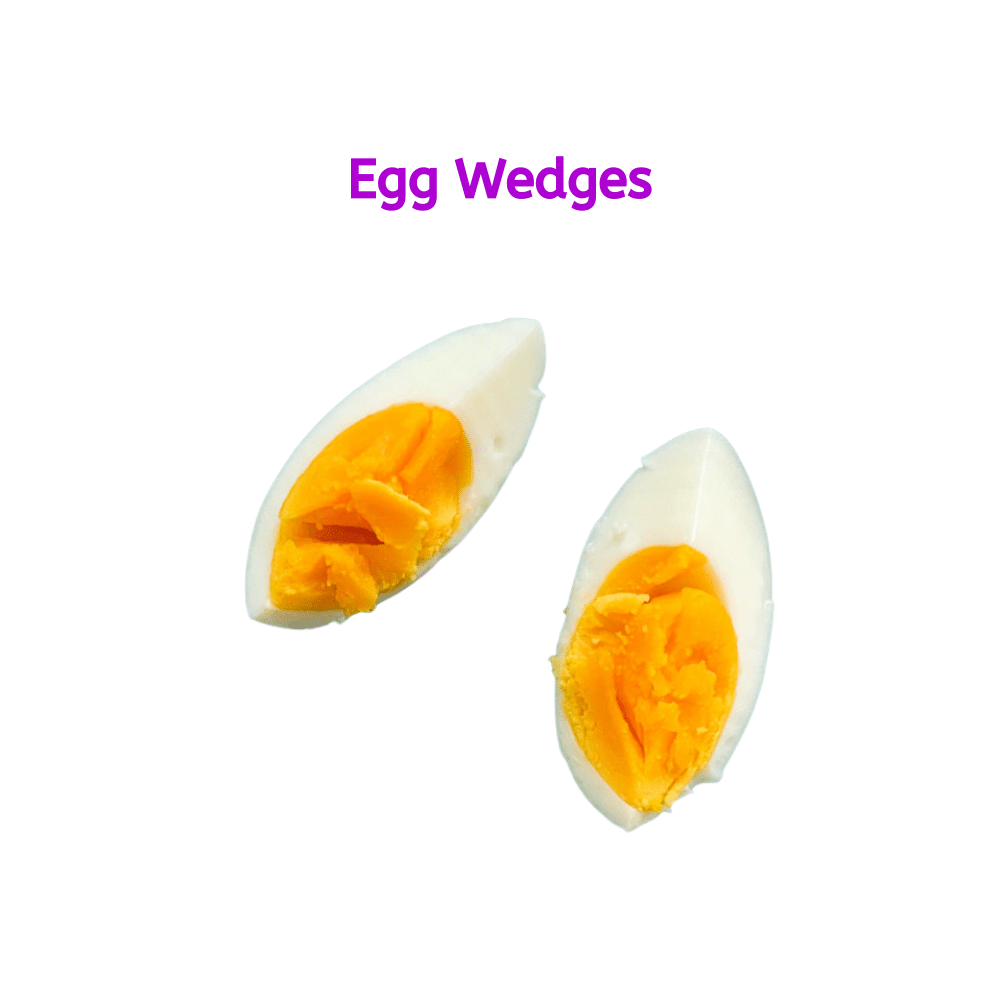
4. How often can I give my baby eggs?
Egg consumption frequency varies, with some suggesting 3-4 times per week while others endorse daily intake.
Adjust egg portions based on other meat or fish consumed.
Remember, a healthy diet includes various fruits, whole grains, and nutritious vegetables.
It is advised that children above the age of one year (between 12-36 months) consume one medium to large-sized egg every day.
5. Is egg a common allergen?
Egg allergy can occur at any age, but it is most common in infants under 1 year of age (when eggs are introduced into the diet). It is the most common food allergy in infancy.
There are different levels of sensitivity to eggs (each child will react differently to different amounts and forms of egg processing). Some may be allergic to egg white (the most common), the whole egg, or just certain parts of the egg. It is possible to be allergic to eggs and still tolerate trace amounts. Egg allergy can also depend on how the eggs are cooked (omelette, boiled, raw).
Allergy symptoms may include:
- Skin symptoms: perioral erythema, hives, swelling of the lips and tongue.
- Respiratory symptoms: bronchospasm, cough, choking sensation.
- Digestive symptoms: vomiting, abdominal pain…
If there is any doubt about an allergic reaction to eggs, stop offering eggs and consult with a pediatrician.

Simple Herb Scrambled Egg for Baby-Led Weaning
Ingredients
- 1 egg Free-range if possible
- 1 tsp finely chopped chives
- 1 tsp finely chopped parsley
- 1 tsp whole milk
- 1 tsp unsalted butter
Instructions
- Whisk the egg, chives, parsley, and milk together in a small bowl
- Heat the butter in a nonstick skillet over medium-low heat
- Add the egg mixture to the skillet and cook, stirring constantly with a spatula, until scrambled and cooked through, about 3-4 minutes
- Remove from heat and allow to cool before serving to your little one
- Serve on a small plate or in a bowl, along with a soft spoon for easy eating
Notes
- Use organic and free-range eggs if possible.
- Make sure to thoroughly cook the egg to reduce the risk of salmonella.
- You can substitute the chives and parsley with other herbs of your choice.
- Ensure to use unsalted butter and avoid adding salt to the recipe.
- This recipe is suitable for babies over 6 months of age who have already been introduced to eggs.
Conclusion
Introducing eggs to your baby’s diet as early as six months of age is safe and beneficial.
Recent studies show that introducing eggs and other allergenic foods early can reduce the chance of allergy and protect against future sensitivity.
Despite potentially allergenic, eggs are highly nutritious and contain healthy fats, minerals, and high-quality proteins.
However, it is essential to be cautious when introducing eggs to babies, especially those with a family history of egg allergies.
We’re Maria and Alberto, a married couple and educators who are nutrition enthusiasts. Even before we had kids, we were already crazy about nutrition.
We’d read scientific articles, watch videos from nutritionists, and spend hours listening to nutrition podcasts.
Today, we continue doing this, but in a different way, as we’ve learned to sift through the noise and trends. Nutrition, like any other field of knowledge, the more you read and learn, the more you develop a comprehensive understanding of reality, and that’s what has happened to us.
Before having our first child, we focused on learning everything we could about child nutrition, using the same techniques we had already employed, backed by our extensive knowledge in nutrition.
Our mission is to help other parents with their children’s nutrition, to help them become the best versions of themselves.
If we are what we eat and drink, which is absolutely true, let’s do it right!
